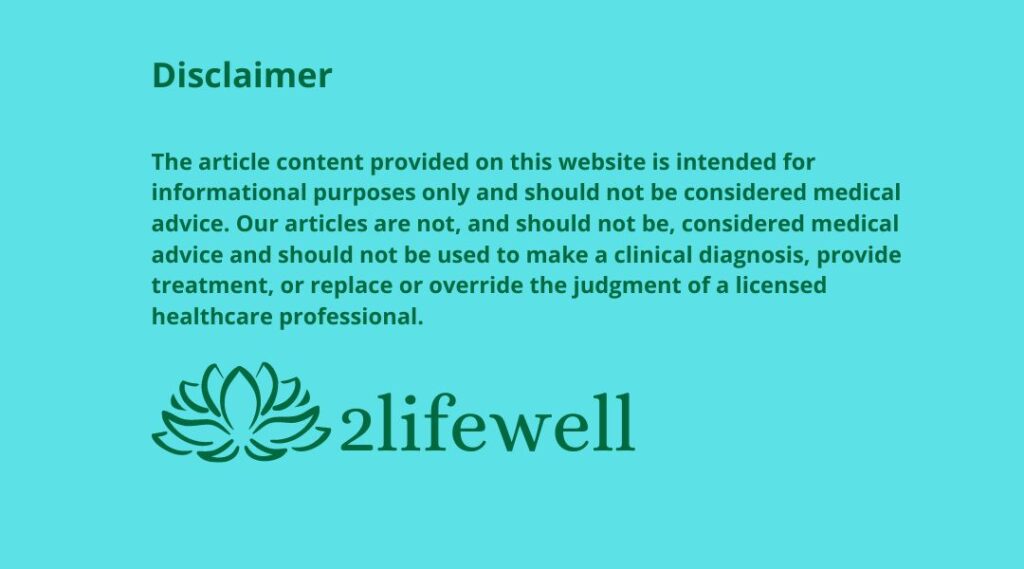Embracing Self-Compassion on the Path to Mental Fulfillment

In the pursuit of mental fulfillment, we often focus on external achievements, seeking validation and approval from others. However, true fulfillment begins from within, rooted in the practice of self-compassion.
Self-compassion is the act of treating ourselves with kindness, understanding, and acceptance, especially in times of difficulty or suffering. It involves recognizing our own humanity, embracing our flaws and imperfections, and offering ourselves the same care and compassion we would offer to a dear friend.In this comprehensive guide, we will explore the importance of self-compassion in the journey to mental fulfillment, offering practical insights and strategies for cultivating greater self-love and understanding.
From understanding the concept of self-compassion to incorporating compassionate practices into our daily lives, each section will delve into key principles and techniques for nurturing a more compassionate relationship with ourselves. Let us embark on this journey together, as we discover the transformative power of self-compassion in achieving greater mental well-being and fulfillment.
Understanding Self-Compassion: What It Is and Why It Matters
Self-compassion is the foundation of a healthy relationship with ourselves, yet many of us struggle to understand what it truly means. In this section, we will explore the concept of self-compassion, defining its components and exploring why it is crucial for our mental well-being. Through real-life examples and practical insights, we will learn how to cultivate greater self-compassion and embrace ourselves with kindness and understanding.
The Power of Self-Compassion: How It Transforms Our Relationship with Ourselves
Self-compassion has the power to transform our relationship with ourselves, fostering greater resilience, self-esteem, and inner peace. In this section, we will explore the profound effects of self-compassion on our mental and emotional well-being, understanding how it can help us navigate life’s challenges with grace and compassion.
Through mindfulness practices and self-compassion exercises, we will learn how to cultivate a more loving and supportive relationship with ourselves.
Cultivating Self-Compassion: Practices and Techniques for Nurturing Self-Love

Cultivating self-compassion is an ongoing practice that requires patience, mindfulness, and self-awareness. In this section, we will explore practical techniques and exercises for nurturing self-love and compassion. From self-compassion meditations to self-care rituals, we will learn how to prioritize our own well-being and treat ourselves with the kindness and care we deserve.
Overcoming Self-Criticism: Embracing Kindness and Understanding Toward Ourselves
Self-criticism is a common barrier to self-compassion, often leading to feelings of unworthiness and inadequacy. In this section, we will explore how to overcome self-criticism and embrace kindness and understanding toward ourselves. Through cognitive reframing techniques and compassionate self-talk, we will learn how to challenge negative self-beliefs and cultivate a more compassionate inner dialogue.
The Science of Self-Compassion: How It Impacts Our Brain and Mental Health
Recent research has shed light on the neuroscience of self-compassion, revealing its profound effects on brain function and mental health. In this section, we will explore the science behind self-compassion, understanding how practicing self-kindness and understanding can reshape our brain and enhance our overall well-being. From reducing stress to boosting resilience, we will uncover the myriad ways in which self-compassion impacts our mental health and happiness.
Self-Compassion and Resilience: Building Emotional Strength in the Face of Adversity
Resilience is the ability to bounce back from adversity, and self-compassion plays a crucial role in fostering emotional strength and resilience. In this section, we will explore how self-compassion can help us navigate life’s challenges with greater grace and resilience. Through mindfulness practices and self-compassion exercises, we will learn how to cultivate inner strength and bounce back from setbacks with greater ease.
Letting Go of Perfectionism: Embracing Imperfection with Self-Compassion
Perfectionism often stems from a fear of failure and a desire for approval, but it can also be a barrier to self-compassion. In this section, we will explore how to let go of perfectionism and embrace imperfection with self-compassion.
Through mindfulness practices and self-compassion exercises, we will learn how to release the pressure to be perfect and accept ourselves as we are, flaws and all.8. Self-Compassion in Action: Applying Kindness and Understanding to Daily ChallengesSelf-compassion is not just a concept; it is a way of life. In this section, we will explore how to apply kindness and understanding to daily challenges and difficulties.
From practicing self-soothing techniques to setting healthy boundaries, we will learn how to navigate life’s ups and downs with greater ease and resilience through the lens of self-compassion.
Healing from Within: Using Self-Compassion to Overcome Past Trauma and Pain

Past trauma and pain can leave lasting wounds, but self-compassion offers a pathway to healing from within. In this section, we will explore how to use self-compassion to overcome past trauma and pain. Through mindfulness practices and self-compassion exercises, we will learn how to offer ourselves the love, kindness, and understanding we need to heal and move forward in our lives.
Self-Compassion and Self-Care: Prioritizing Our Well-Being with Kindness and Compassion
Self-care is essential for our overall well-being, and self-compassion is at the heart of it. In this section, we will explore how to prioritize our well-being with kindness and compassion. From setting boundaries to practicing self-compassion rituals, we will learn how to nourish ourselves on a physical, emotional, and spiritual level through the practice of self-compassion.
The Role of Self-Compassion in Relationships: Cultivating Healthy Connections with Others
Self-compassion not only benefits our relationship with ourselves but also has a profound impact on our relationships with others. In this section, we will explore how self-compassion can help us cultivate healthier, more fulfilling connections with others. From setting boundaries to practicing empathy, we will learn how to navigate relationships with greater kindness and understanding through the lens of self-compassion.
Cultivating a Self-Compassionate Mindset: Shifting Perspective for Greater Fulfillment
Cultivating a self-compassionate mindset is a journey of self-discovery and growth. In this section, we will explore practical strategies for shifting our perspective and cultivating greater self-compassion in our lives. From practicing gratitude to reframing negative self-talk, we will learn how to nurture a more compassionate inner dialogue and experience greater fulfillment and happiness as a result.
Embracing Vulnerability: Finding Strength in Openness and Authenticity Through Self-Compassion
Vulnerability is often seen as a weakness, but it is actually a source of strength and courage. In this section, we will explore how to embrace vulnerability with self-compassion, finding strength in openness and authenticity. Through mindfulness practices and self-compassion exercises, we will learn how to lean into vulnerability with courage and compassion, experiencing greater connection and authenticity in our lives.
The Art of Self-Forgiveness: Letting Go of Regret and Guilt with Compassion
Self-forgiveness is a powerful practice that allows us to release the burden of regret and guilt and make peace with our past mistakes. In this section, we will explore how to cultivate self-forgiveness through the practice of self-compassion. From practicing forgiveness rituals to reframing negative self-beliefs, we will learn how to let go of the past and embrace ourselves with kindness and understanding.
Self-Compassion and Personal Growth: Fostering Development and Resilience Through Kindness
Personal growth and resilience are essential components of a fulfilling life, and self-compassion provides a fertile ground for their cultivation. In this section, we will explore how self-compassion can foster personal growth and resilience.
Through mindfulness practices and self-compassion exercises, we will learn how to embrace challenges as opportunities for growth and navigate life’s ups and downs with greater ease and resilience.
Self-Compassion in Times of Crisis: Navigating Challenges with Grace and Understanding
In times of crisis, self-compassion offers a lifeline of support and comfort. In this section, we will explore how to lean into self-compassion during times of crisis and difficulty. From practicing self-soothing techniques to seeking support from others, we will learn how to navigate challenges with grace and understanding, finding strength and resilience in the practice of self-compassion.
Self-Compassion and Mental Well-Being: Enhancing Happiness and Satisfaction Through Kindness
Mental well-being is closely intertwined with self-compassion, as it fosters greater happiness, satisfaction, and peace of mind. In this section, we will explore how self-compassion enhances our mental well-being. From reducing stress to boosting self-esteem, we will uncover the myriad ways in which self-compassion promotes greater happiness and fulfillment in our lives.
The Practice of Self-Compassion: Incorporating Compassionate Practices into Daily Life
Self-compassion is not just a concept; it is a practice that requires cultivation and commitment. In this section, we will explore practical strategies for incorporating self-compassion into our daily lives. From mindfulness exercises to self-compassion rituals, we will learn how to prioritize our well-being and treat ourselves with the kindness and compassion we deserve.
Embracing Self-Compassion as a Path to Inner Peace and Fulfillment
Embracing self-compassion is a transformative journey that leads to greater inner peace and fulfillment. In this section, we will explore how self-compassion serves as a path to greater well-being and fulfillment. Through mindfulness practices and self-compassion exercises, we will learn how to nurture a more loving and supportive relationship with ourselves, experiencing greater peace and contentment as a result.
The Journey of Self-Compassion: Nurturing a Lifelong Relationship with Ourselves
The journey of self-compassion is a lifelong one, characterized by growth, self-discovery, and transformation. In this final section, we will reflect on the journey of self-compassion and the importance of nurturing a lifelong relationship with ourselves. From embracing our humanity to celebrating our strengths and successes, we will learn how to cultivate greater self-love, acceptance, and compassion as we continue on the path to mental fulfillment and inner peace.
Books:
- “Self-Compassion: The Proven Power of Being Kind to Yourself” – Kristin Neff-https://amzn.to/3z8ad7W
- Kristin Neff, a pioneer in the study of self-compassion, explores how being kind to yourself can lead to a happier, more balanced life.
- “The Mindful Path to Self-Compassion: Freeing Yourself from Destructive Thoughts and Emotions” – Christopher Germer-https://amzn.to/45qFNKb
- Germer combines mindfulness and self-compassion, offering practices for dealing with negative thoughts and emotions and promoting mental fulfillment.
- “Radical Acceptance: Embracing Your Life With the Heart of a Buddha” – Tara Brach-https://amzn.to/3Xn8LZm
- Brach discusses how radical acceptance and self-compassion can transform lives and promote emotional well-being.
- “The Gifts of Imperfection: Let Go of Who You Think You’re Supposed to Be and Embrace Who You Are” – Brené Brown-https://amzn.to/4b8Dmgk
- Brown explores the importance of accepting our imperfections and practicing self-compassion to achieve a full and satisfying life.
- “The Compassionate Mind: A New Approach to Life’s Challenges” – Paul Gilbert-https://amzn.to/4c20rTr
- Gilbert introduces Compassion Focused Therapy, showing how developing compassion for yourself can improve mental health and happiness.
Scientific articles:
- “Self-Compassion and Psychological Well-Being” – Neff (2003)
- This seminal article by Kristin Neff examines the relationship between self-compassion and psychological well-being, showing its benefits for mental health.
- “The Relationship Between Self-Compassion and Well-being: A Meta-Analysis” – MacBeth & Gumley (2012)
- Meta-analysis investigating how self-compassion is related to well-being, including positive effects on reducing anxiety and depression.
- “Self-Compassion as a Moderator of the Relationship Between Stress and Mental Health: A Longitudinal Study” – Sirois, Molnar, & Hirsch (2015)
- Study exploring how self-compassion can moderate the effects of stress on mental health over time.
- “Self-Compassion and Emotional Intelligence in Nurses” – Heffernan, Griffin, McNulty, & Fitzpatrick (2010)
- Investigates the relationship between self-compassion, emotional intelligence and well-being among healthcare professionals.
- “Self-Compassion and Adaptive Psychological Functioning” – Neff, Kirkpatrick, & Rude (2007)
- Explores how self-compassion is associated with adaptive and resilient psychological functioning.
Book Chapters:
- “Compassion: Bridging Practice and Science” – Chapter on self-compassion by Kristin Neff and Christopher Germer (2017)-https://amzn.to/3VrkXFY
- Addresses the integration of self-compassion practices with scientific discoveries, highlighting their benefits for mental health.
- “The Handbook of Self-Compassion: Theory, Research, and Practice” – Chapter on the psychological benefits of self-compassion by Kristin Neff and Christopher Germer (2020)-https://amzn.to/3KLzjfi
- A comprehensive look at the theory and practice of self-compassion and its positive impacts on mental health.
- “Compassion-Focused Therapy: Distinctive Features” – Chapter on the application of self-compassion in therapy by Paul Gilbert (2010)-https://amzn.to/3VLzHko
- Explores the distinctive features of Compassion Focused Therapy and how self-compassion can be used as a therapeutic tool.

